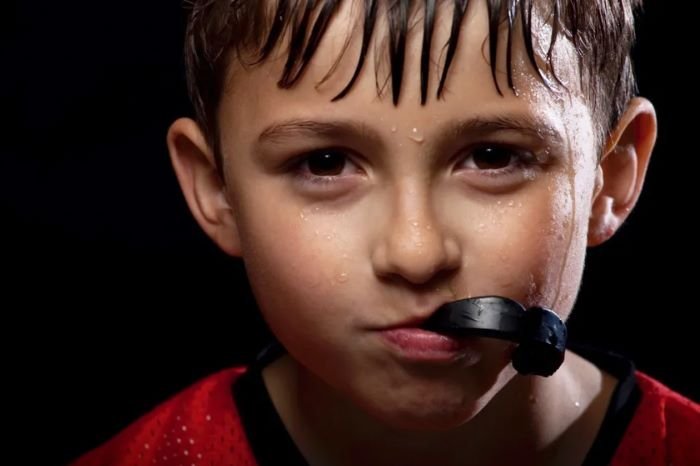The Ultimate Guide to Mouthguards: Protecting Your Smile
Mouthguards are a simple yet effective way to protect your dental health.

Introduction to Mouthguards
Mouthguards might not be the first thing that comes to mind when thinking about dental health, but they're crucial for protecting your teeth and gums in various situations. Whether you're an athlete, a person who grinds their teeth at night, or undergoing certain dental treatments, understanding the importance and types of mouthguards can save you from potential dental injuries and discomfort.
What Are Mouthguards?
Mouthguards are protective devices worn over your teeth to shield them from injury. They are commonly used in sports to prevent dental trauma and are also recommended for people with bruxism (teeth grinding) or those undergoing orthodontic treatment.
Importance of Mouthguards
The primary role of a mouthguard is to prevent injury to your teeth, lips, tongue, and jaw. In sports, they can reduce the risk of broken teeth and other injuries to your mouth. For those with bruxism, mouth protectors can help alleviate symptoms and prevent further damage to your teeth.
Types of Mouthguards
Stock Mouthguards
Stock mouth protectors come pre-molded and are ready for immediate use, making them an affordable option available at most sporting goods retailers. Despite their convenience and low cost, these mouth protectors often lack a precise fit, which can lead to discomfort and a less secure feel in the mouth.
Boil and Bite Mouthguards
Boil-and-bite mouth protectors provide a more customized fit compared to stock mouth protectors. These mouth protectors can be softened in hot water and then molded to the shape of your teeth, ensuring a snugger and more comfortable fit.
Custom-Fit Mouthguards
Custom-fit mouth protectors are made by your dentist specifically for your mouth. They offer the best protection and comfort but are also the most expensive option.
Who Needs a Mouthguard?
Athletes and Sports Enthusiasts
Individuals engaging in contact sports like football, basketball, hockey, or martial arts should wear a mouthguard to safeguard their teeth against potential injuries.
Bruxism Sufferers
People who grind their teeth at night, known as bruxism, can benefit from wearing a mouthguard. It helps prevent tooth damage and can alleviate associated jaw pain.
Dental Patients
Those undergoing orthodontic treatments or who have had recent dental surgery may need a mouthguard to protect their teeth and gums during the healing process.
How to Choose the Right Mouthguard
Assessing Your Needs
Consider why you need a mouthguard. Is it for sports, bruxism, or dental protection? This will guide you in choosing the right type.
Considering Comfort and Fit
A mouthguard should fit comfortably in your mouth. It should not restrict breathing or speech. Custom-fit mouth protectors offer the best comfort and protection.
Evaluating Material and Durability
Look for mouth protectors made from durable, high-quality materials. They should be able to withstand impact and last for a considerable period.
Benefits of Wearing a Mouthguard
Preventing Dental Injuries
mouth protectors are essential for preventing broken or chipped teeth, as well as injuries to the lips, tongue, and jaw.
Reducing Risk of Concussions
By absorbing and redistributing the force of an impact, mouth protectors can help reduce the risk of concussions during sports activities.
Alleviating Bruxism Symptoms
For those with bruxism, mouth protectors provide a barrier between the teeth, preventing further wear and reducing jaw pain.
How to Use a Mouthguard Properly
Fitting Instructions
For boil and bite mouth protectors, follow the instructions carefully. Boil the mouthguard, let it cool slightly, then bite down to shape it to your teeth.
Cleaning and Maintenance Tips
After every use, thoroughly clean your mouthguard using a toothbrush and toothpaste. Ensure it is stored in a ventilated case to keep it dry and inhibit bacterial growth.

Common Myths About Mouthguards
Mouthguards Are Uncomfortable
While some may find stock mouth protectors uncomfortable, custom-fit options are designed to fit your mouth perfectly, offering maximum comfort.
Only Professional Athletes Need Mouthguards
Anyone involved in sports or activities with a risk of dental injury should wear a mouthguard, not just professional athletes.
Mouthguards Are All the Same
mouth protectors vary in quality, fit, and purpose. Custom-fit mouth protectors offer superior protection compared to stock or boil and bite options.
Mouthguards for Different Sports
Football
Football players are at high risk for dental injuries and should always wear a mouthguard during games and practices.
Basketball
Although it is not a contact sport, basketball players can still benefit from wearing mouth protectors to protect against accidental impacts.
Hockey
In hockey, the risk of dental injuries is significant due to the fast pace and physical nature of the game. mouth protectors are essential.
Martial Arts
Martial arts participants should wear mouth protectors to protect against blows to the face and mouth, reducing the risk of dental injuries.
Mouthguards for Bruxism
Understanding Bruxism
Bruxism, characterized by the unconscious grinding or clenching of teeth, frequently occurs during sleep. This condition can cause tooth damage and result in jaw pain.
How Mouthguards Help
mouth protectors create a physical barrier between the upper and lower teeth, preventing grinding and alleviating the symptoms of bruxism.
Mouthguards for Dental Procedures
During Orthodontic Treatment
Wearing a mouthguard can protect your braces and teeth from damage during sports or other activities.
Post-Dental Surgery
After dental surgery, a mouthguard can protect the surgical site and help in the healing process by keeping the area safe from injury.
Caring for Your Mouthguard
Daily Cleaning Routine
Clean your mouthguard with a toothbrush and toothpaste after each use. Rinse it thoroughly with water.
Proper Storage Solutions
Store your mouthguard in a sturdy, ventilated container to keep it dry and free from bacteria.
When to Replace Your Mouthguard
Signs of Wear and Tear
Replace your mouthguard if you notice signs of wear and tear, such as cracks or if it no longer fits properly.
Frequency of Replacement
Depending on the type and frequency of use, you may need to replace your mouthguard every six months to a year.
DIY vs. Professional Mouthguards
Pros and Cons of DIY Mouthguards
DIY mouth protectors are cheaper but may not provide the same level of protection and comfort as professional ones.
Benefits of Professional Custom-Fit Mouthguards
Custom-fit mouth protectors, made by your dentist, offer superior protection, fit, and comfort compared to over-the-counter options.
Conclusion
Mouthguards are a simple yet effective way to protect your dental health. Whether you're an athlete, suffer from bruxism, or are undergoing dental treatment, choosing the right mouthguard can prevent injuries and provide comfort. Always prioritize quality and fit to ensure maximum protection.
What's Your Reaction?










![Blog Submission Sites 2024 [High DA]](https://blognow.co.in/uploads/images/202306/image_100x75_6494a03eaff5e.jpg)
![Article Submission Sites 2023 [High DA & PA]](https://blognow.co.in/uploads/images/202307/image_100x75_64c4181f17036.jpg)
![Classified Submission Sites 2023 [High DA & PR]](https://blognow.co.in/uploads/images/202306/image_100x75_649dcd5260808.jpg)




![Article Submission Sites 2023 [High DA & PA]](https://blognow.co.in/uploads/images/202307/image_750x415_64c4181f08ed5.jpg)
![Classified Submission Sites 2023 [High DA & PR]](https://blognow.co.in/uploads/images/202306/image_750x415_649dcd5247eeb.jpg)
![Blog Submission Sites 2024 [High DA]](https://blognow.co.in/uploads/images/202306/image_750x415_6494a03e96bfa.jpg)